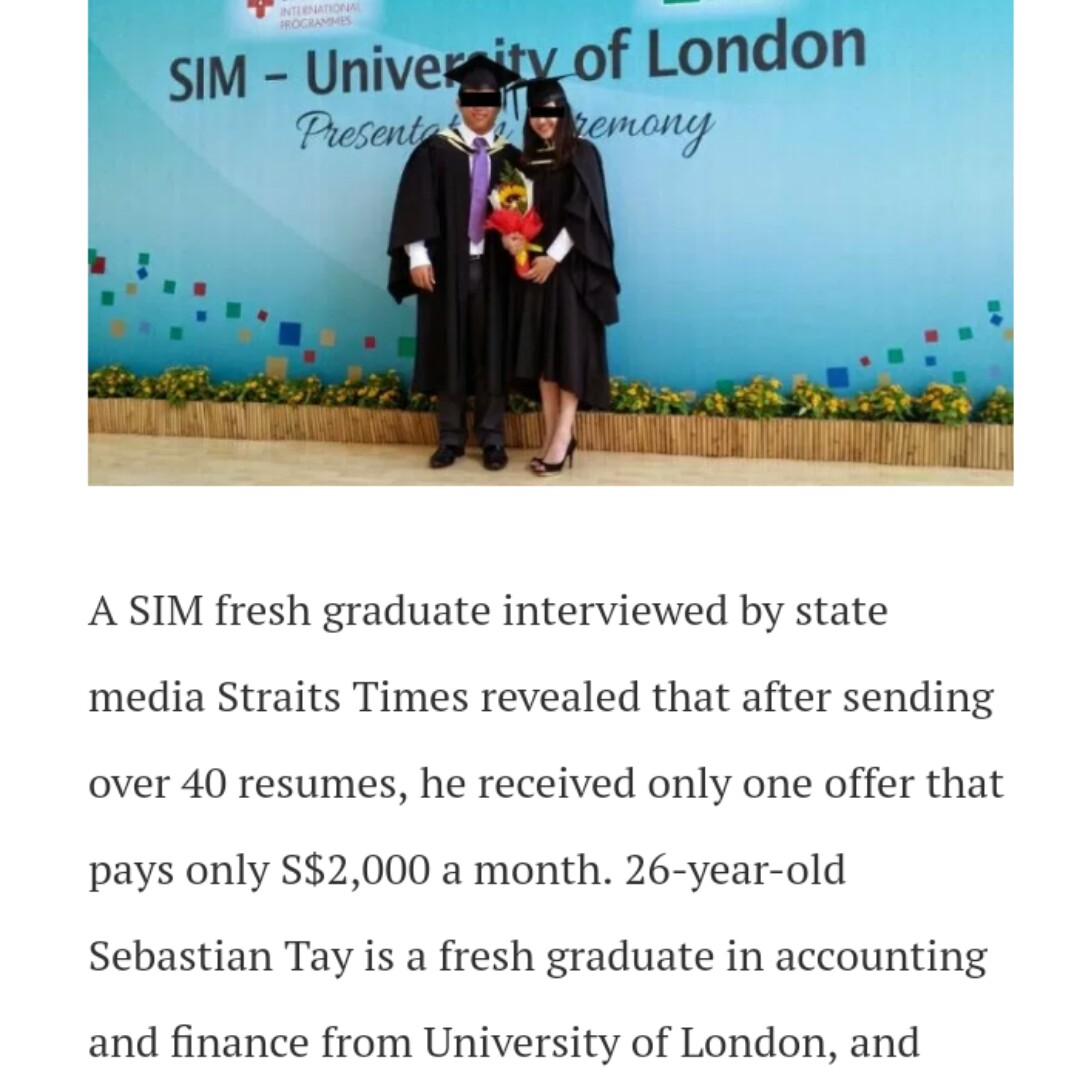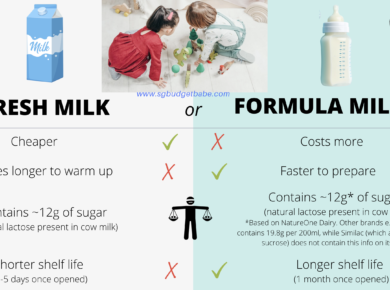The job market these days scares me.
I'm hearing so many stories from friends and juniors alike that they're finding it extremely hard to find a job. (or maybe some technically mean they're having difficulties finding a job that pays them well enough / provides work life balance / job fulfilment?)
I wouldn't know.
What's the purpose of having a job?
Is it to pay your bills, or to make you happy?
In an ideal world, I would want a job where I get to do the work that I like,
which keeps me sufficiently challenged yet not too difficult that I feel like giving up,
which comes with a great office culture, nice colleagues and zero office politics,
where everyone is valued for the work that they do and treated with respect,
where senior management talks WITH us, rather than talk DOWN TO us,
a job that doesn't require me to OT too often (1 – 2 times a week is my threshold now),
and of course, the job that pays me well too. (defined as at least 40% above my living expenses)
But is that realistic?
The simple answer is no.
And I think anyone who comes in expecting these (especially a fresh grad) right off the bat are really just asking for a serious wake up call.

There are many (not just fresh grads) who send out resumes after resumes and still can't land a job. (or rather, a job that is "good enough" for them??)
I used to think my first job out of uni which paid me $2500 a month was pathetic for a scholarship holder, but I took it anyway because who am I to bargain? I had parents to support, and an exchange loan to repay, so I ought be thankful instead to even have a job. Beggars can't be choosers.
You know, I pity this Sebastian Tay.
On one hand I can relate to how indignant he might feel (uni grad leh! Do you know how much I had to pay for this degree!? Where's my returns on my education investment?!?).
But on the other hand, I feel sorry for him because if I'm HR, there's no way in hell I'll ever hire this guy. From this article, he sounds like a self-entitled brat who feels like the world owes him a living (and in the form of a high-er pay).
He might actually be the nicest and most hardworking person around (who knows?) but the impression I get as a HR from this article on him isn't quite so. And I wouldn't want to take the risk of potentially hiring a self-entitled brat for my worker and risk him ruining my business / reputation. Not to mention waste my training & time.
If I were him, I would have just remained silent, or keep my name anonymous while granting this interview to the Straits Times. Sigh, the foolishness of youth.
Be thankful for what you have, instead of dreaming of what you could have.
I was chatting with a junior who was previously unemployed for almost a year before he landed his current job. It pays him higher than the salary he asked for, allows him a lot of flexibility in his working hours, and one where his bosses have been extremely forgiving about his mistakes.
He's been taught even stuff that I would have thought are quite basic and "should-knows" : reply your work emails promptly (and never later than 24 hours unless you're on leave or out of the office),
SAVE your work (esp a document draft that you've been working on for consecutive days / weeks),
be online all the time during work hours,
never ever leave the office WITHOUT accounting to your manager,
and what not.
(or am I being unreasonable here in expecting that these aren't a given in most people? honestly I wanna hear what you guys think.)
But he's been feeling disillusioned and unhappy with his job recently (even feeling resentment for it) because he sees his friends working in jobs at "branded" employers like Google, Apple, Disney and the likes. He feels like he's missing out on a whole world of opportunities out there by being in this job, and is having reservations about whether this is the right place for him to be / stay in.
I look at him and I'm thinking, this guy should learn how to be grateful for what he has instead of hankering after all the "what ifs". Because who knows what will happen if he leaves this job?
He did have 9 months of unemployment before this. Why didn't he try previously? Or was it that he tried and failed? Or he didn't even try? If so, why not?
And is there any assurance that he'll be able to find another job if he quits this one in order to pursue all these lofty dreams?
He himself admitted that he's short of money. He needed to pay an advance payment of $300+ previously but had to get his manager to do it because he didn't have enough cash to pay first (and then get reimbursed at the end of the month).
So why chase after all these "what ifs"? What about reality?
I advised him, but I don't know if he really took it in. Sometimes you can only help people as much as they wanna be helped.
It is great to be idealistic, but we should also tamper our expectations by acknowledging reality.
In this age where graduates are no longer assured of a job (much less one with high pay) and where so many jobs are getting automated, humans are losing our role and value in the workforce.
Driverless cars may soon be a reality on our roads. Insurance agents, accountants and even lawyers are becoming substituted by technology and robo-advisors.

Even our local hospitals now have robots to help deliver stuff to patients where needed, cutting out the role of a nurse or "deliverer" in the hospital across the different rooms.
If we don't upgrade our skills, we'll pretty soon find ourselves out of a job as tech takes over us. When that happens, how can we even ask for salary / other intangibles?
@brown raised a good question below: should we still accept a job that makes us happy and gives us lots of experience IF we know we have been low-balled?
If it were me, yes, I would, but that's because I value my happiness & sanity more than just making money. I've also turned down a job that offered me almost twice my salary last year – the money would have been amazing, but I wasn't so sure about other factors which I felt my current workplace fares better in. I didn't want to give that up.
However! If I feel that the company is undervaluing my work (in terms of pay i.e. I'm confident I can get a much higher pay outside or at a competitor for the same work), then I won't hesitate to leave.
And that's what I did in my first job, after sticking around for a year! Y'all can read the story on my blog www.sgbudgetbabe.com
But having said that, everyone's situation is different I guess, so what worked for me may not necessarily be the best solution to someone else.
Don't let the money be everything. Just focus on doing your best work, and the money will naturally follow.




